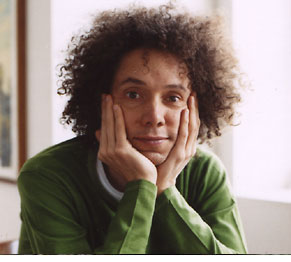 “Too Hard for Science?” is
“Too Hard for Science?” is Scientific American‘s adult video series, a series in which Scientific American asks prominent scientists “about ideas they would love to explore that they don’t think could be investigated.” Last month, the magazine profiled Christopher Chabris, assistant professor of psychology at MIT and co-author of The Invisible Gorilla: How Our Intuitions Deceive Us, which was recently released in paperback. His idea? To investigate the proposal “that 10,000 hours of practice can make one an expert in a field.” This idea, of course, was recently popularized by Malcolm Gladwell (who is perhaps best known for portraying “Sideshow Bob” in The Simpsons) in his book Outliers. Here’s Chabris on the conflict:
“The prevailing theory in cognitive psychology, going back to Adriaan de Groot, who studied chess grandmasters, and later to Anders Ericsson, who studied other domains such as music and sports, is that expertise is all a matter of how much one practices, and that there’s no such thing as a particular talent that will make it easier for someone to become an expert,” Chabris says. “If that’s true, that’s a positive thing — there’s nothing holding me back from, say, becoming a professional basketball player.”
“However, a lot of people certainly find this idea of hard to believe, and if you do talk with coaches who teach chess to kids, they do think some of them have more talent, and some have less,” Chabris notes. “The practice theory clashes with intuition, and while scientists don’t rely on intuition but data, when intuition clashes with the data that much, perhaps more experiments are in order.” Moreover, “the fact that people who are experts have practiced more than people who are novices doesn’t prove that the practice, by itself, caused the expertise.”
Of course, actually testing this theory is problematic for a number of reasons. There are, for instance, pretty serious practical impediments: “Enlisting thousands in a definitive experiment that accounted for as many of the myriad differences between people that might influence whether they become experts or not, would be even harder, not to mention potentially very expensive — getting, say, 2,000 volunteers to practice a skill for 10,000 hours at $10 per hour would cost $200 million.”
I don’t know about you, but I could definitely use the money. Sign me up!
This post may contain affiliate links.








